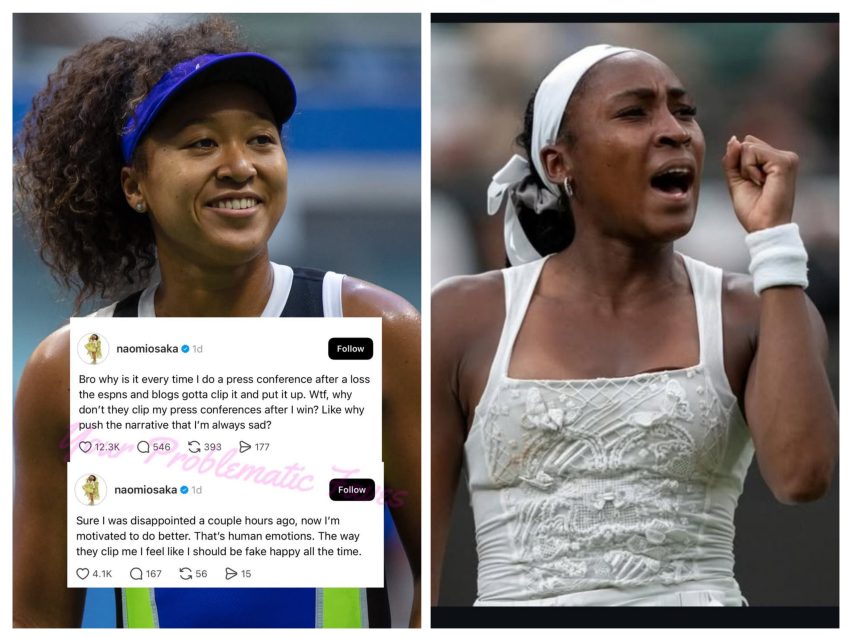The internet loves a villain. And when it comes to women — especially famous, talented, and outspoken women — people are often far too eager to cast men in their lives as the root of all their troubles. The latest example: Naomi Osaka.
After her third-round exit at Wimbledon, Osaka gave an honest and vulnerable interview. She admitted she had nothing positive to say about herself following the loss, adding:
> “I’m just gonna be a negative human being today. I’m so sorry. I have nothing positive to say about myself, which is something I’m working on. It was my daughter’s birthday. I was happy about that this week. Other than that, today, I’m just constantly replaying the match.”
It was a raw moment — the kind of authenticity Osaka has always been known for. But instead of focusing on her tennis career or her mental health journey, parts of the internet quickly pivoted to blame her partner, rapper Cordae, for supposedly “ruining her life” and turning her into a “baby mama.”
Thankfully, fellow tennis star Coco Gauff spoke up in defense of Osaka, reminding fans and the media that Osaka’s challenges run deeper than her personal relationships and that the constant criticism is both unfair and harmful. Gauff acknowledged Osaka’s journey and emphasized how motherhood or a relationship shouldn’t define or diminish an athlete’s achievements.
Let’s be crystal clear: this narrative blaming Cordae is both harmful and utterly detached from reality.
First, Osaka’s struggles with mental health are well-documented and precede her relationship with Cordae or the birth of her daughter. Even at the height of her career, winning Grand Slams and ascending the rankings, she often spoke candidly about anxiety, self-doubt, and the crushing pressure of public expectations. Her tough self-criticism after a loss isn’t new — it’s part of how she processes high-level competition and her own perfectionist tendencies.
Second, the idea that a woman “ruins her career” simply by becoming a mother is deeply rooted in misogyny. It suggests that motherhood is an automatic handicap or that women are incapable of balancing multiple facets of their lives. It also perpetuates the notion that a woman’s entire existence revolves around — and is defined by — the men in her life. Cordae didn’t “make” Osaka a mother against her will. She chose motherhood. That choice deserves respect, not condemnation.
Moreover, the hyper-focus on Cordae’s supposed influence over Osaka’s life reveals a disturbing pattern: the tendency to strip women of their agency. Naomi Osaka is a grown woman, an elite athlete, a business mogul, and a new mother — all identities she holds simultaneously. Reducing her journey to the actions of her partner ignores her autonomy and erases the complexity of her life.
Finally, let’s not forget the racialized undertones of labeling a Black woman a “baby mama.” It’s a term often weaponized to demean and devalue Black women, suggesting irresponsibility or moral failure. Osaka deserves better than to be dragged through harmful stereotypes simply for choosing love and family on her own terms.
Naomi Osaka’s story is bigger than any single match loss or life event. She is a woman navigating the pressures of global stardom, personal growth, and motherhood. The conversation about her career should honor her truth, not impose a narrative that blames a man for choices she made with her own mind and heart.
It’s time to respect Naomi Osaka’s humanity — and stop erasing her story to fit a misogynistic script. And thanks to voices like Coco Gauff’s, more people are being reminded of exactly that.
